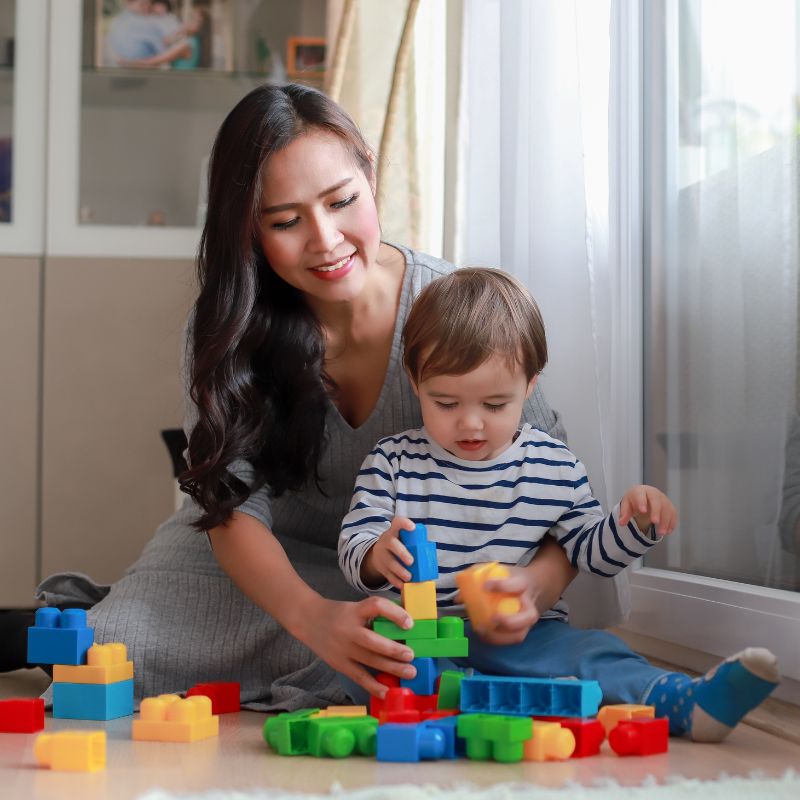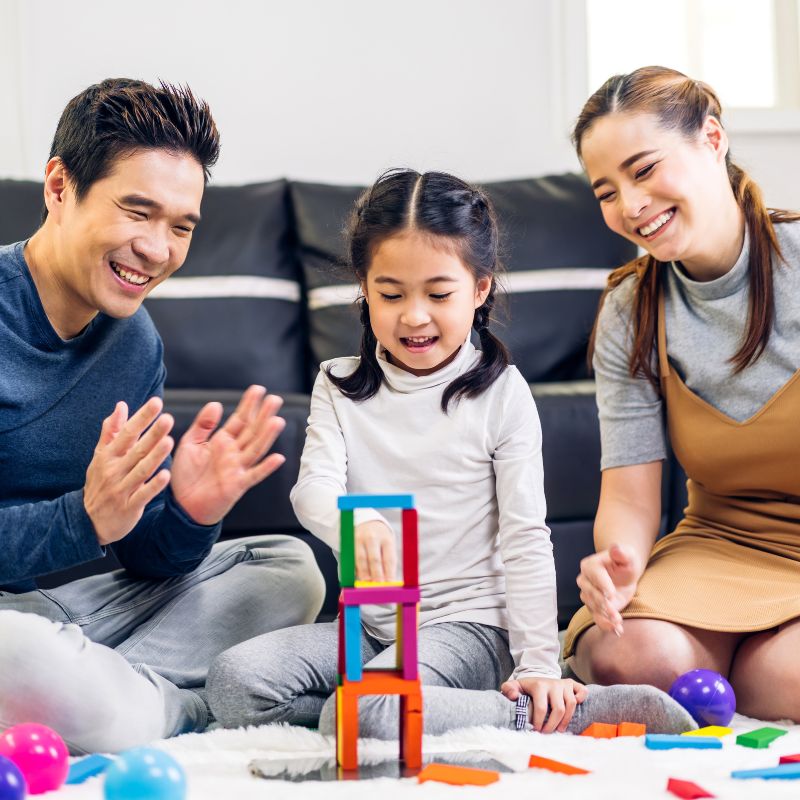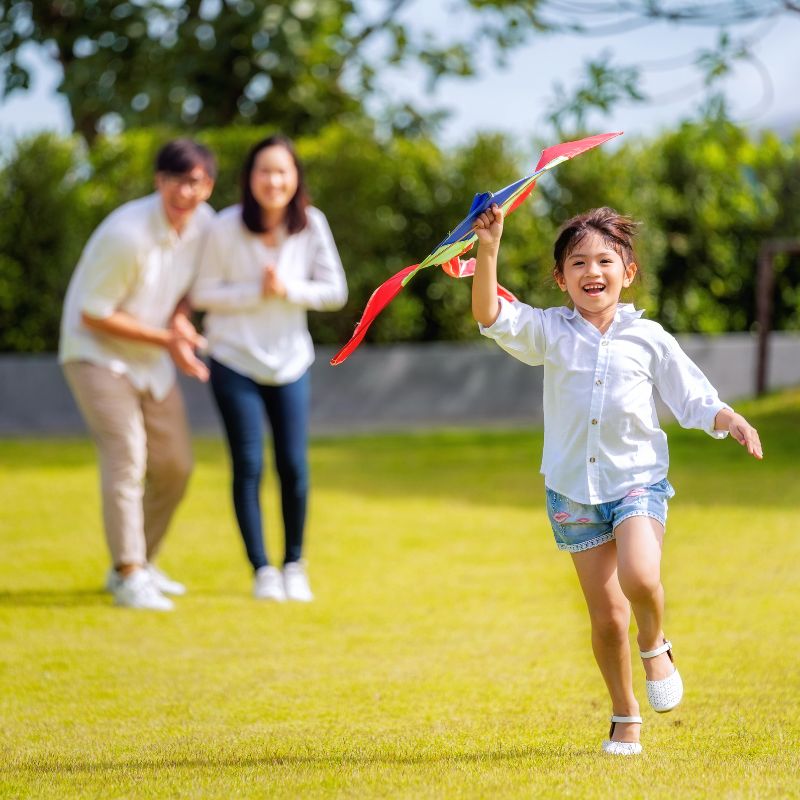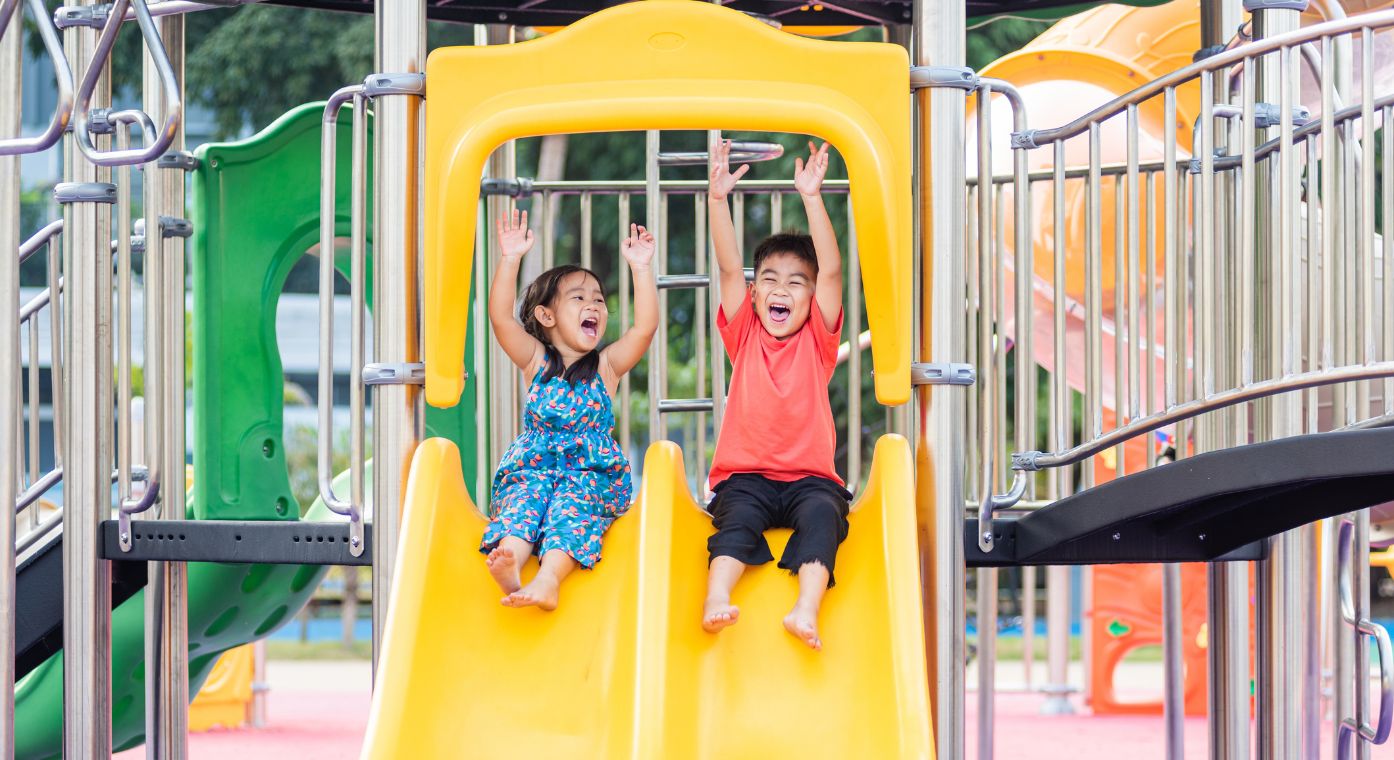Benefits Of Games In Early Childhood Education
Play in early childhood and beyond is the brain’s favourite way of learning. When playing games, children become more engaged, and more focused on what they are doing which allows a child to practise what she knows, and also what she doesn’t. Game-based learning also helps her to experiment, find solutions, work out the best approach and raise the level of confidence and skills.
When at preschool age, the benefits of child development activities that are short and snappy, like the fun circle games that really work cannot be underestimated. This sort of play can teach many crucial skills that your child can then use to deepen her play. It also encourages social-emotional learning such as maintaining eye contact, waiting for her turn, understanding and dealing with her emotions and listening, which are all key skills in life.
For instance, if a child is competitive and doesn’t like to lose, how do you deal with this kind of behaviour? Just keep playing the game is one way of handling this. Playing by the game’s rules also helps a child see the boundaries and learn how far she can push her opponent.
Always allowing your child to win does not give her the opportunity to work on skills necessary for getting along with others. The sooner she learns that it is not possible to win every time, the better it will be for her. Your child will learn this reality of winning and losing from an early age. Games will be an effective way to make a child understand this life skill.
Games benefit children & adults too

To have good physical and mental health children need unstructured play-based learning opportunities from birth until well into their teens. Play-based learning is an enjoyable means to stay active, healthy and happy.
Playing games is important for adults as well! It is a process that stimulates their imagination, creativity, and problem-solving abilities, and ensures emotional well-being. It is also a relevant way to preserve cognition and prevent cognitive decline.
More importantly, adults will love learning new and exciting games with their children and realise that their time is well-spent learning new ideas and maintaining their overall mental well-being. So when your child happens to ask you to join in the game she is playing don’t hesitate, just go for it!
By engaging in fun learning activities, you are preparing your child to be ready for school by stimulating her imagination and helping her enhance literacy and numeracy skills.
Make it a point to go out with your child and play in the park. Outdoor play and nature are beneficial to your child as they begin to learn more about the world around them and help meet their sensory developmental needs.
Keeping play fun & engaging

Children know that it is not just playing that is fun but so is learning. While they’re at play, they may ignore your exact instructions and find unusual ways of doing things on their own. Toddlers will use building blocks not just for making towers, but they may also want to paint without a paintbrush! Just show them how things work. If they want to experiment, don’t discourage them.
Play-based learning helps children use all their senses, through taste, touch, vision, hearing and smell. They also watch those around them and find it simple and easy to imitate how these people speak and behave. Never force your child nor impose something she doesn’t like.
Children tend to develop in their own ways and in their own time. Remember, don’t compare them to other children either. Encourage reading, by reading to and with them in the evenings and at bedtime. Spend time looking at the pictures together; this will help very young children connect the visuals accompanying the text and helps them to make sense of what the words really mean.
Talking to them about everyday things, even when you are busy cooking or cleaning, will be of great help. You get to tell and teach children in an interactive way, encouraging them to keep asking questions. Be ready to answer lots of why’s and how’s? Be patient though and make time to explain.
Set the scene

Child development activities allow children to relax, let off steam, develop social skills such as concentration and co-operation, encourage the development of gross and fine motor skills and teach self-expression.
While many children take to playing as a duck takes to water, some might discover that it is not an easy thing to do and would need help from a parent. It is very important that children play with their peers and are given opportunities for unstructured play, but children who also play with a loved adult benefit greatly – don’t underrate the value or its benefits.
Parents have a very important role to play by making time and space available with the relevant resources. Your active support and help will stimulate and keep a child’s interest alive and will go a long way than you can imagine.
Children try to make sense of the world in which they live by acting out situations before they happen and by copying what they see around them. Pretend play enables them to see life from a different point of view and contributes significantly to their emotional development.
Being naturally imaginative, children will happily talk with an imaginary caller on their toy phone. Or you would have seen a child sitting inside a packing box and imitating driving his imaginary car or truck. This sort of play needs to be actively encouraged as it helps a child develop their imagination and is directly linked to helping their intellectual growth.
Encourage your child to explore outdoor play as it will be extremely beneficial and necessary for her development. She will learn a lot about the ever-changing environment outside. This experience will also help her to use the whole body and develop her gross motor skills. Meet multi-sensory needs and can instil a love for the outdoors.
More to games than meets the eye

Playing games at home increases overall motivation. By playing games, your child can become more motivated and involved in learning, more inclined to develop the ability to concentrate and listen with care and engage easily to complete a given set of tasks. Games give the child confidence to become a team player, and aware of how to be responsible for her own learning.
By using games at home young children get the hang of competing against each other whilst playing a game, and then support each other during other learning activities, once in a classroom environment.
Most games call for problem-solving strategies and planning. By applying a range of strategies in a game, young children can learn to use their working memory to solve problems and increase their mental cognition capabilities. Stimulating the brain with strategies that are applied while playing a game can be a great brain workout in itself.
You can use games in a lesson to create positivity and motivate a child to participate and develop a healthy attitude towards learning. Content-specific games boost memory. As a child plays a game, she has to remember important rules and moves that need to be made. She also gets to use her working memory to think and act quickly.
When playing a game, a child needs to be alert and attentive as the game can move rather quickly. This attentiveness helps a child to stay focused. Game-based learning is a great tool to use and consolidate new knowledge. Help a child understand and make connections with what she already knows.
About My Gym
My Gym involves children in dynamic games, physical activity and movement that help in building neural networks in the brain. Making it easier for children to acquire intellectual skills, navigate complex social situations, and nurture emotional development.
To find out more about how My Gym plays a key role in supporting “whole-child development,” please visit any of our centres. Choose a day when you will be relatively free and come over with your child in tow. Your child could be an infant (as young as 6 months), a toddler or a preschooler, age is not a bar for enrolling.
My Gym has child enrichment programs that lay a firm foundation for personal, academic and future growth by involving your child in age-appropriate games, creative learning and problem-solving activities.
Please note: My Gym classrooms are thoroughly sanitized every day — the tables, the chairs, the children’s activity stations and everything else the child might touch is made safe and clean. Please wear a mask, wash hands frequently, and practice social distancing.
Frequently Asked Questions
What are the benefits of games for children?
Game-based learning is one of the most fun-filled and enriching parts of early childhood education. Listed below are a few benefits of games in education:
1. Promotes physical and mental health
2. Stimulates creativity & imagination
3. Enhances problem-solving skills
4. Boosts sensory development
5. Encourages literacy and numeracy abilities
What is the importance of fun and play?
Play-based learning activities for kids are designed to develop their fundamental skills while also providing them with ample opportunities to experiment, discover, and find solutions, which swiftly build their confidence.
It also makes it easier for parents to plan and organise fun learning activities for children, which fosters parent-child bonds and keeps them engaged at home.
As a result, unstructured play is a key component of educational activities for preschoolers.
Why is engagement important in early childhood?
Child development activities such as games, arts, and role-playing that engage children in exploration, imagination, and discoveries help shape a child’s attitude over time. The importance of engagement in early childhood education:
1. Promotes the development of neural networks in the brain
2. Improves gross and fine motor skills
3. Makes room for innovation
4. Enhances communication abilities
5. Boosts confidence & self-esteem
How can I improve my child’s concentration and focus?
Fun learning activities for children, such as games, arts & crafts, and music, among others, intensify a child’s motivation as they are naturally inclined to new and interesting ways of learning. When children participate in child development activities that they love, their concentration, ability to focus, and attention span improve rapidly. Game-based learning is one of the most effective strategies to support children’s holistic development.
Why do we need to implement game-based learning inside the classroom?
Implementing a game-based learning strategy in the classroom helps children discover new lessons, experiment with different approaches to perform their routine functions in a creative way, and come up with solutions to problems they experience as part of their routine. By incorporating play-based educational activities for preschoolers, children gain confidence and feel motivated to pursue learning opportunities that are presented before them, broadening their learning horizons.



